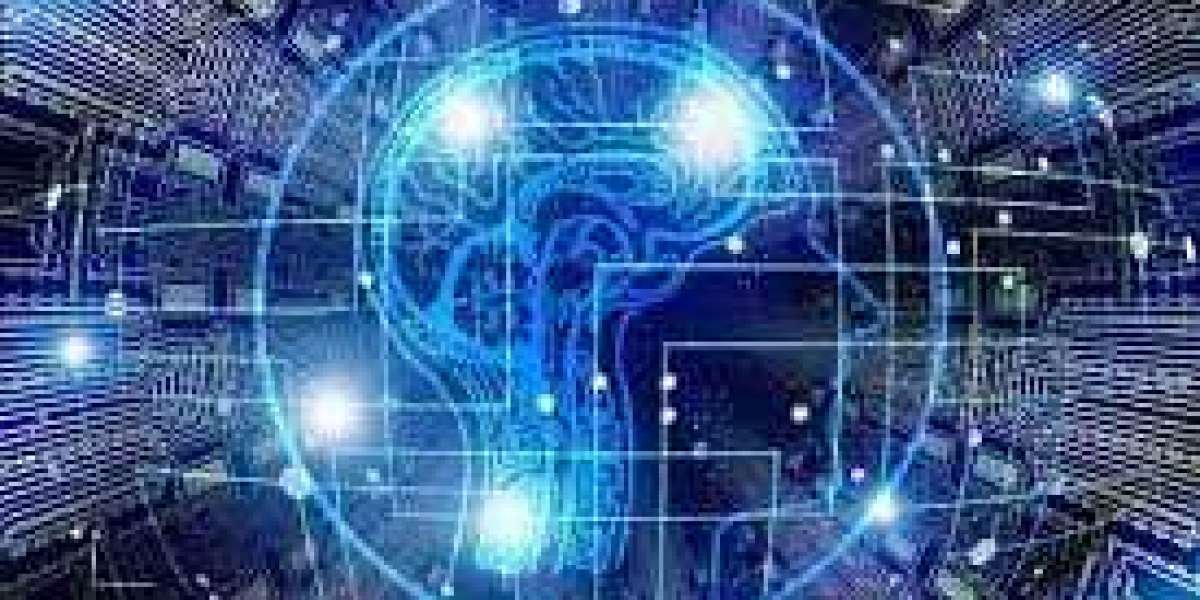In the ever-evolving landscape of health and wellness, the role of artificial intelligence development companies has become increasingly prominent. This article explores the pivotal influence of these companies on nutritional health, shedding light on how cutting-edge technology is reshaping the way we approach, understand, and optimize our nutritional well-being.
The Rise of Artificial Intelligence in Nutritional Health:
As artificial intelligence development companies continue to push the boundaries of innovation, their impact on nutritional health is transforming the traditional paradigms of dietary guidance and personalized nutrition. The fusion of advanced algorithms, machine learning, and big data analytics has opened new avenues for addressing the intricacies of individual nutritional needs.
Understanding Nutritional Challenges:
Nutritional health is a multifaceted domain, with individualized requirements influenced by factors such as age, lifestyle, genetics, and medical conditions. Artificial intelligence development companies bring a data-driven approach to the table, dissecting complex nutritional challenges and providing insights that go beyond generic dietary recommendations.
Personalized Nutrition Plans:
One of the noteworthy contributions of artificial intelligence in nutritional health is the creation of personalized nutrition plans. By analyzing vast datasets encompassing genetic information, lifestyle choices, and dietary preferences, these companies generate tailor-made nutritional recommendations. This approach ensures that individuals receive guidance aligned with their unique biological and lifestyle markers.
Early Detection of Nutritional Deficiencies:
Artificial intelligence algorithms excel in the early detection of nutritional deficiencies. By scrutinizing patterns in dietary habits and correlating them with potential deficiencies, these systems can alert individuals and healthcare professionals to address nutritional gaps promptly. This proactive approach can prevent the onset of health issues related to malnutrition or imbalanced diets.
Smart Food Choices and Meal Planning:
Artificial intelligence development companies are at the forefront of developing applications that facilitate smart food choices and meal planning. These applications utilize machine learning to analyze nutritional content, helping users make informed decisions about their dietary intake. Additionally, AI-driven meal planning tools consider individual preferences and dietary restrictions, promoting healthier and more sustainable eating habits.
Nutrition Education and Awareness:
Promoting nutritional education and awareness is crucial for fostering healthier communities. Artificial intelligence development companies contribute by creating engaging and accessible platforms that disseminate accurate nutritional information. By leveraging data analytics, these companies can tailor educational content to specific demographics, making nutritional guidance more relatable and impactful.
Telehealth Integration for Nutritional Consultations:
Telehealth has gained prominence, and artificial intelligence is enhancing its capabilities in the realm of nutritional consultations. Development companies are integrating AI algorithms into telehealth platforms, enabling real-time analysis of dietary habits during virtual consultations. This synergy ensures that healthcare professionals can offer more accurate and personalized nutritional advice, irrespective of geographical distances.
Addressing Global Nutritional Disparities:
Nutritional disparities exist on a global scale, and artificial intelligence development companies play a vital role in addressing these inequities. By analyzing population-wide nutritional trends and health outcomes, AI systems can identify regions with specific nutritional challenges. This information facilitates targeted interventions, allowing policymakers and healthcare organizations to implement strategies tailored to local needs.
Challenges and Ethical Considerations:
Despite the potential benefits, the integration of artificial intelligence in nutritional health is not without challenges. Ethical considerations, data privacy, and algorithmic biases must be carefully addressed. Ensuring that AI systems prioritize inclusivity, respect privacy, and adhere to ethical standards is paramount for building trust and fostering widespread acceptance of these technologies in the nutritional health domain.
The Future Landscape of Nutritional Health:
As artificial intelligence development companies continue to refine their approaches, the future landscape of nutritional health holds promise. The synergy between technology and nutrition is poised to redefine dietary practices, preventive healthcare, and nutritional education. Embracing the potential of AI, we are entering an era where personalized, data-driven nutritional guidance becomes an integral part of holistic well-being.
In the dynamic intersection of artificial intelligence and nutritional health, the impact of development companies is profound. The ongoing innovations in personalized nutrition, early detection of deficiencies, and the promotion of healthier dietary choices are reshaping the way individuals and healthcare professionals approach nutritional well-being. As we navigate this transformative journey, the collaborative efforts of technology and nutrition are poised to create a healthier and more informed global community. Embracing the capabilities of artificial intelligence, we embark on a path where nutritional health is not just a reactive measure but a proactive and personalized journey towards optimal well-being.








